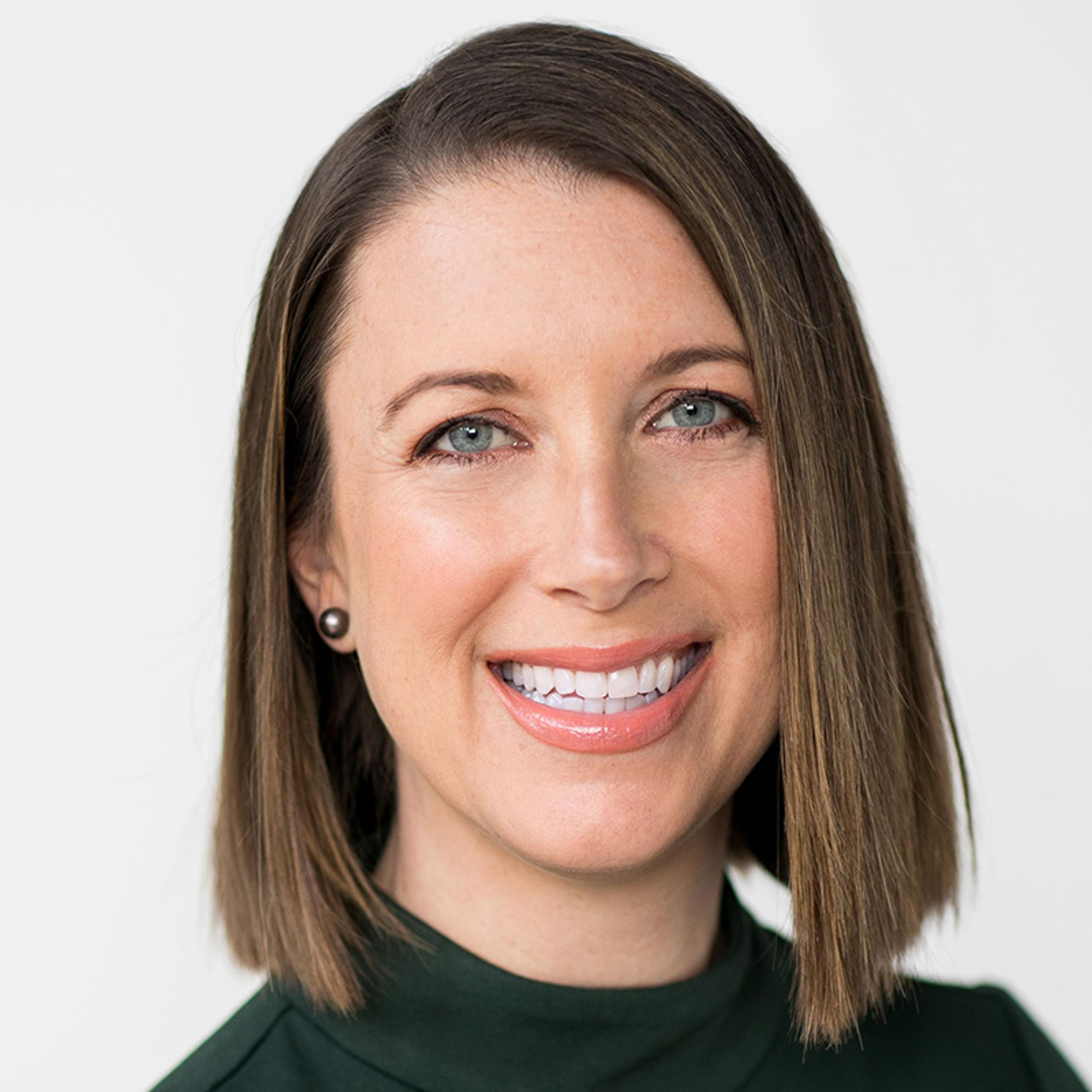

Dr. Erin Parks is a clinical psychologist, researcher, and co-founder of Equip. Erin serves as Chief Clinical Officer (CCO) of Equip, leading a team of clinicians and researchers that are passionate about increasing access to treatment that works.
A forever optimist, and often prone to black/white thinking, I left college and dove into a career in research. I was confident, if not overly optimistic, that everything would have a logical answer. Things would be researched, answers would be found, and everyone would embrace the newfound knowledge and facts.
After a decade in neuroimaging research, I ended up in the eating disorder field almost by accident. I had just given birth to my first child, and was off-cycle for fellowships (the step after receiving your doctorate). I asked a few friends from graduate school to meet me for lunch, brought my baby to meet them—and I asked the question, “Do you know anyone hiring off-cycle for postdocs?” My friend, June suggested that I look at the UC San Diego Eating Disorders Center. The bias of my training showed when I asked, “Why would I want to work in eating disorders; that sounds awful?!”
That is what I had been taught, and what most are taught (either directly or by omission) as they go through graduate school or medical school—the stereotypes that are rampant in our culture about eating disorders (e.g., difficult families, white-girl vanity issue) are just as prominent in our medical training. But June assured me—the UC San Diego program is special.
What came next was the most incredible decade of my career. I had the immense privilege of training, working, and eventually co-leading the most incredible eating disorders program in the world. That is not hyperbole. What is happening at UC San Diego is so unique and special that people travel from all over the world to get treatment at their amazing program. UC San Diego conducts research, delivers cutting-edge treatment, employs the best clinicians, includes family and lived-experience in a meaningful way, tracks outcomes and demands success, and they care about patients and families passionately. If I were to briefly disclose their secret sauce, it would be that they have a truly collaborative multi-disciplinary team, focus on the present (not the past) by teaching skills to patients AND carers, and finally, they value treatment that works more than treatment that feels good. I know they won’t be mad that I’m sharing their “secret formula”—UC San Diego goes out of their way to host free workshops/CE training (online and in person), publish articles, chapters, videos, blogs and podcasts to share with others. They sincerely want every center to provide excellent treatment.
It is likely confusing that my “Why I founded Equip” is reading like a marketing piece for UC San Diego. The thesis is, UC San Diego is incredible, and leaving was a devastatingly hard decision… and it all goes back to my optimism and black/white thinking. While I was working at UC San Diego I met hundreds of families, too many families, that (prior to arriving at UC San Diego) had been to numerous eating disorder treatment centers (without success) and were experiencing deep financial hardship. During their first weeks of treatment, I’d watch many experience hope and relief (This place is so different—now my child will get better!) followed by anger—why didn’t I know about evidence-based treatment earlier, before we’d spent years and our family’s savings on treatment that didn’t work? Lisa Sabey captures this frustration well in her documentary, Anorexia.
Initially, my optimism held. If UC San Diego just did more free trainings, more publishing, more outreach—we could help educate consumers on how to choose treatment that works, over treatment that feels good. We could also help to disseminate evidence-based treatment and more providers would offer treatment that works.
I keep saying that, “treatment that works, not treatment that feels good”—what does that mean? Lots of things feel great: massages, outdoor walks, talking to someone who is a great listener—and while all of these things can give us pleasure, they do not cure someone of an eating disorder. The treatments that do result in recovery--those treatments are very difficult on the provider, on the family, and certainly on the patient. It is a parent telling their child that they cannot leave for college until they are engaging in pro-health behaviors. It is a provider challenging the parents on their decision to eat salads while their child eats pasta. It’s a patient, eating six times per day, every day, and resisting urges to engage in eating disorder behaviors. It is all hard work--and it often doesn’t feel good.
During my 10 years at the university, two things were happening in parallel.
- Every year, researchers and clinicians offered exponentially more free resources to educate consumers and train providers about evidence-based treatment.
- Every year, private equity built and purchased exponentially more treatment centers, employing more marketers than therapists to tell the public about the feel-good treatments that would cure their eating disorders.
Despite all of the hard work of many advocates, clinicians, and researchers--bad treatment was proliferating faster than evidence-based treatment was being adopted. With the exponential increase in privately-owned treatment centers, patients and their parents were conned into spending their money on treatment that felt good--but that ultimately didn’t work. And worse, when their child didn’t get better, the treatment centers blamed the patient--saying that they weren’t ‘ready enough’ or ‘motivated’ for recovery. Many families have been duped into returning to the same center, over-and-over, thinking they were the reason the treatment failed, instead of recognizing that the treatment center was insufficient.
UC San Diego is not the only center that uses evidence-based treatment, the problem is that it is one of the few. While advocates, clinicians and researchers must continue the effort to train more people in evidence-based practices, those efforts aren’t sufficient for families who need help today but don’t live in a community with access to trained specialists.
And that is why we created Equip. We created Equip for the families that don’t live near a good treatment center. For families that can’t travel hundreds or thousands of miles to see an evidence-based provider. For parents that want their child to heal at home instead of being sent away. For patients that want to fit treatment into their life, instead of stopping their life to go to treatment. In 2019, before COVID was on our radar, we built the first collaborative-care, 100% telehealth, eating disorder treatment. We built Equip. We built Equip for your family.







